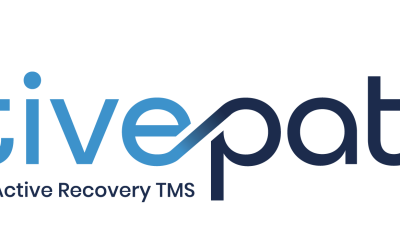TMS Is an Appropriate Option for Patients Who Have Not Found Success with Antidepressants
Remission from depression is achievable for a sizeable percentage of those who seek treatment for it. Even in cases where first-line treatment options have failed, TMS is a sound alternative with the potential to help many patients reach their recovery goals.
Most people who suffer from depression begin their treatment journey with medication. Antidepressants like selective serotonin reuptake inhibitors (SSRIs) are the usual jumping off point, sometimes in conjunction with a regimen of psychotherapy. For some patients, this does the trick, but for many others, the initial use of psychopharmaceutical therapy is just the first step in a longer therapeutic process of trial, error, and discovery. In 2006, the National Institute of Mental Health published the results of a massive study examining which depression treatment options were most effective for the largest number of people. The results were enlightening for anyone who is interested in the way that depression is treated in America.
The study was titled Sequenced Treatment Alternatives to Relieve Depression (STAR*D), and it particularly sought to determine the effectiveness of depression medication treatments.[1] Participants in the STAR*D study self-rated the severity and alleviation, if any, of their depression symptoms. Successful treatment, according to this study, was assessed as total remission of depression symptoms. If a patient’s depression did not go into remission upon initial treatment (using a single, common antidepressant), they continued to the next treatment level until their depression was sufficiently treated or they withdrew from the study altogether. A common reason participants withdrew from the study was the intolerable side effects of the depression medications prescribed in the later treatment levels.
The conclusions of the STAR*D study are interesting, to say the least. Despite the fact that about half of the participants in the STAR*D study became symptom-free after two treatment levels, the withdrawal rate from the study only escalated as the treatments became more intense; 21 percent withdrew after level 1, 30 percent after level 2, and 42 percent after level 3. This indicates that, despite the efficacy of antidepressant treatment, adhering to a regimen is often difficult, impractical, or even more disruptive than depression symptoms themselves, due to the side effects (which only become more intense the more aggressively a case of depression needs to be treated).
Long-term treatment through psychopharmacological therapy alone is not a viable option for many of the MDD patients involved in the STAR*D study. TMS therapy success rates[2][3] are on par with the remission rate of the first level of STAR*D treatment. However, the success rate of TMS is based on studies involving patients who had already been treated unsuccessfully with antidepressants, whereas the STAR*D study excluded patients who had already responded poorly to its first level antidepressant treatment in the past. Based on these results, TMS has proven to be a more appropriate and tolerable option for cases of major depressive disorder, including those that have features of treatment resistance.
Because it lacks the undesirable side effects of pharmacological treatment, TMS therapy is an alternative that makes sense for many patients who have not found lasting, tenable success with medication.Every patient facing depression has different needs, and the best course of action must, of course, be determined between the patient and their provider. TMS is a wonderful new tool in modern medicine’s depression-fighting arsenal, and we’re proud to provide it to those who have not been able to eliminate their symptoms through medication. We’re happy to talk to you about TMS treatment and what it could mean for you or your loved ones who are suffering from depression. Let us work with you to explore how TMS could fit into a successful treatment plan as you work to take control of your depression and reclaim your life. All content provided on this blog is for informational purposes only and is not intended to be a substitute for professional medical advice, diagnosis, or treatment. Always seek the advice of your physician or other qualified health provider with any questions you may have regarding a medical condition. If you think you may have a medical emergency, call your doctor or 911 immediately. Reliance on any information provided by the Active Path website is solely at your own risk.





